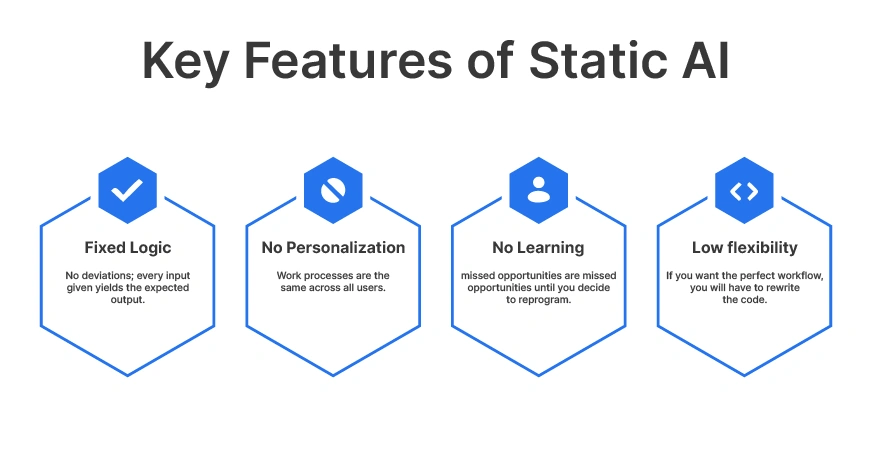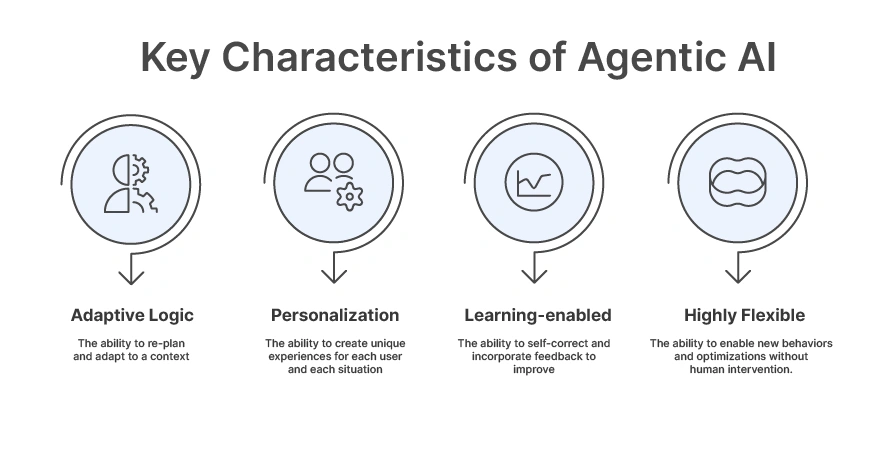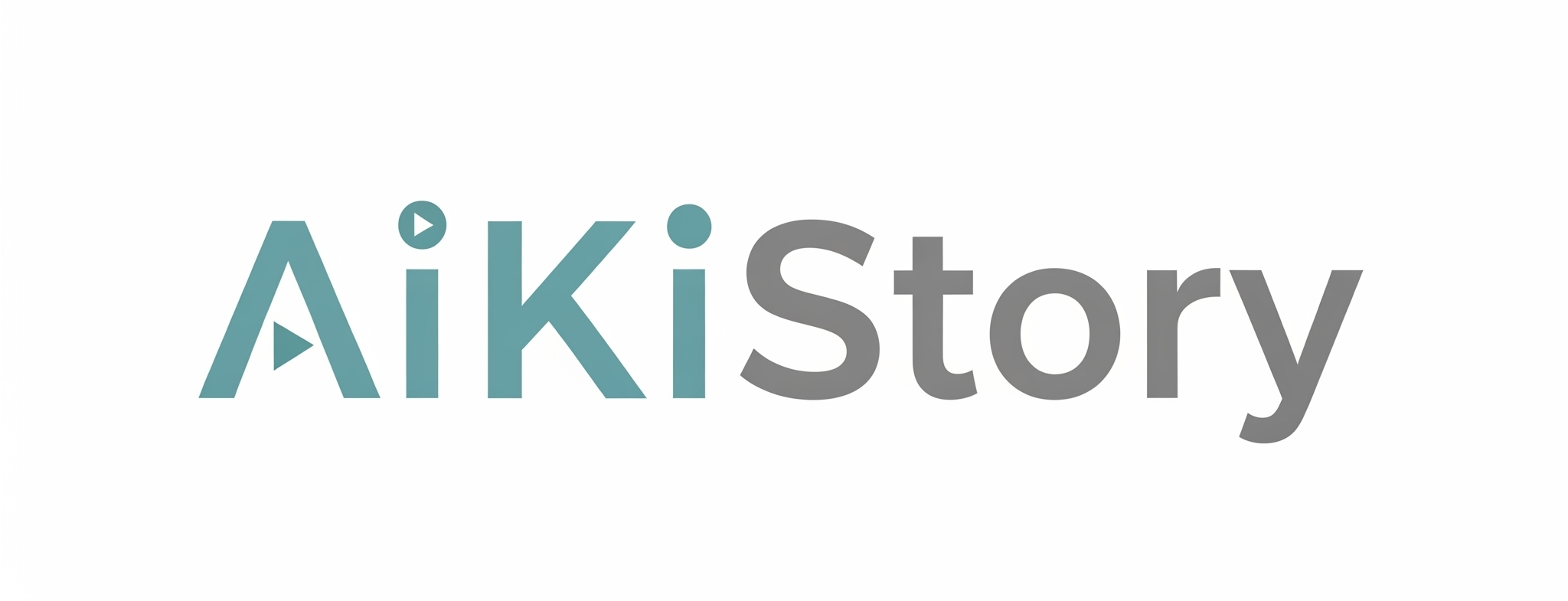In a world formed by quickly rising know-how, companies and builders are frequently searching for smarter options that improve productiveness, personalization, and frictionless experiences. The inflow of recent agentic AI methods is reshaping how work is completed and the way duties are organized and accomplished. Static workflows, previously the guts of automation, are being changed by agentic architectures that be taught, adapt, and optimize work in actual time with no interplay or oversight. This weblog digs into the variations between the 2 AI paradigms, contains examples with code snippets, and explains why agentic methods are redefining and elevating the usual of automation.
What Are Static vs Agentic AI Methods?
Earlier than diving into the small print, let’s make clear what these phrases imply and why they matter.
Static AI Methods
These kind of workflows are based mostly on inflexible, hardcoded sequences. They function linearly, with a inflexible set of sequences that neglect all about context or nuance: you present information or set off occasions, and the system executes a pre-planned sequence of operations. Traditional examples embrace rule-based chatbots, scheduled electronic mail reminders, and linear information processing scripts.
Key Options of Static AI:
- Mounted logic: No deviations; each enter given yields the anticipated output.
- No personalization: work processes are the identical throughout all customers.
- No studying: missed alternatives are missed alternatives till you determine to reprogram.
- Low flexibility: If you would like the proper workflow, you’ll have to rewrite the code.

Agentic AI Methods
Agentic methods symbolize a basically new stage of autonomy. They draw inspiration from clever brokers (brokers) and may make selections, decide sub-goals, and revise actions based mostly on person suggestions, context, and understanding of their progress. Agentic AI methods do greater than carry out duties; they facilitate your complete course of, on the lookout for methods to boost the result or course of.
Key Traits of Agentic AI:
- Adaptive logic: the power to re-plan and adapt to a context
- Personalization: the power to create distinctive experiences for every person and every scenario
- Studying-enabled: the power to self-correct and incorporate suggestions to enhance
- Extremely versatile: the power to allow new behaviors and optimizations with out human intervention.

Static vs. Agentic AI: Core Variations
Let’s summarize their variations in a desk, so you may shortly grasp what units agentic AI aside
| Characteristic | Static AI System | Agentic AI System |
|---|---|---|
| Workflow | Mounted, linear | Adaptive, autonomous |
| Resolution Making | Manually programmed, rule-based | Autonomous, context-driven |
| Personalization | Low | Excessive |
| Studying Capacity | None | Sure |
| Flexibility | Low | Excessive |
| Error Restoration | Handbook solely | Computerized, proactive |
Arms On: Evaluating the Code
To showcase the useful variations, we’ll now stroll by way of the development of a Process Reminder Bot.
Instance 1: Static System Process Reminder Bot
This bot takes a job and a deadline, places the reminder in place, and takes no motion after that. The person bears full accountability for any updates; the bot can’t assist in any respect as soon as the deadline has been missed.
Code:
from datetime import datetime, timedelta
class AgenticBot:
def __init__(self):
self.reminders = {}
def set_reminder(self, user_id, job, deadline):
self.reminders[user_id] = {
'job': job,
'deadline': deadline,
'standing': 'pending'
}
return f"Agentic reminder: '{job}', deadline is {deadline}."
def update_status(self, user_id, standing):
if user_id in self.reminders:
self.reminders[user_id]['status'] = standing
if standing == 'missed':
self.suggest_reschedule(user_id)
def suggest_reschedule(self, user_id):
job = self.reminders[user_id]['task']
deadline_str = self.reminders[user_id]['deadline']
attempt:
# For demo, faux "Friday" is 3 days later
deadline_date = datetime.now() + timedelta(days=3)
new_deadline = deadline_date.strftime("%A")
besides Exception:
new_deadline = "Subsequent Monday"
print(f"Process '{job}' was missed. Prompt new deadline: {new_deadline}")
def proactive_check(self, user_id):
if user_id in self.reminders:
standing = self.reminders[user_id]['status']
if standing == 'pending':
print(f"Proactive verify: '{self.reminders[user_id]['task']}' nonetheless wants consideration by {self.reminders[user_id]['deadline']}.")
# Utilization
if __name__ == "__main__":
bot = AgenticBot()
print(bot.set_reminder("user1", "End report", "Friday"))
# Simulate a missed deadline
bot.update_status("user1", "missed")
# Proactive verify earlier than deadline
bot.proactive_check("user1")Output:

Assessment:
- The script simply sends a affirmation that the motion is full.
- No follow-up after the duty of placing it in place if the deadline was missed.
- If deadlines change or duties change, the person should act on the data manually.
Instance 2: Agentic Process Reminder Bot
This bot is way more clever. It tracks progress, takes initiative to verify in, and suggests options if timelines stray.
Code:
from datetime import datetime, timedelta
class TrulyAgenticBot:
def __init__(self):
self.duties = {} # user_id -> job information
def decompose_goal(self, objective):
"""
Simulated reasoning that decomposes a objective into subtasks.
This mimics the considering/planning of an agentic AI.
"""
print(f"Decomposing objective: '{objective}' into subtasks.")
if "report" in objective.decrease():
return [
"Research topic",
"Outline report",
"Write draft",
"Review draft",
"Finalize and submit"
]
else:
return ["Step 1", "Step 2", "Step 3"]
def set_goal(self, user_id, objective, deadline_days):
subtasks = self.decompose_goal(objective)
deadline_date = datetime.now() + timedelta(days=deadline_days)
self.duties[user_id] = {
"objective": objective,
"subtasks": subtasks,
"accomplished": [],
"deadline": deadline_date,
"standing": "pending"
}
print(f"Aim set for person '{user_id}': '{objective}' with {len(subtasks)} subtasks, deadline {deadline_date.strftime('%Y-%m-%d')}")
def complete_subtask(self, user_id, subtask):
if user_id not in self.duties:
print(f"No lively duties for person '{user_id}'.")
return
task_info = self.duties[user_id]
if subtask in task_info["subtasks"]:
task_info["subtasks"].take away(subtask)
task_info["completed"].append(subtask)
print(f"Subtask '{subtask}' accomplished.")
self.reflect_and_adapt(user_id)
else:
print(f"Subtask '{subtask}' not in pending subtasks.")
def reflect_and_adapt(self, user_id):
"""
Agentic self-reflection: verify subtasks and alter plans.
For instance, add an additional evaluation if the draft is accomplished.
"""
job = self.duties[user_id]
if len(job["subtasks"]) == 0:
job["status"] = "accomplished"
print(f"Aim '{job['goal']}' accomplished efficiently.")
else:
# Instance adaptation: if draft accomplished however no evaluation, add "Additional evaluation" subtask
if "Write draft" in job["completed"] and "Assessment draft" not in job["subtasks"] + job["completed"]:
print("Reflecting: including 'Additional evaluation' subtask for higher high quality.")
job["subtasks"].append("Additional evaluation")
print(f"{len(job['subtasks'])} subtasks stay for objective '{job['goal']}'.")
def proactive_reminder(self, user_id):
if user_id not in self.duties:
print("No duties discovered.")
return
job = self.duties[user_id]
if job["status"] == "accomplished":
print(f"Person '{user_id}' job is full, no reminders wanted.")
return
days_left = (job["deadline"] - datetime.now()).days
print(f"Reminder for person '{user_id}': {days_left} day(s) left to finish the objective '{job['goal']}'")
print(f"Pending subtasks: {job['subtasks']}")
if days_left <= 1:
print("⚠️ Pressing: Deadline approaching!")
def suggest_reschedule(self, user_id, extra_days=3):
"""
Routinely suggests rescheduling if the duty is overdue or wants extra time.
"""
job = self.duties.get(user_id)
if not job:
print("No job discovered to reschedule.")
return
new_deadline = job["deadline"] + timedelta(days=extra_days)
print(f"Suggesting new deadline for '{job['goal']}': {new_deadline.strftime('%Y-%m-%d')}")
job["deadline"] = new_deadline
# Demo utilization to match in your weblog:
if __name__ == "__main__":
agentic_bot = TrulyAgenticBot()
# Step 1: Set person objective with deadline in 5 days
agentic_bot.set_goal("user1", "End quarterly report", 5)
# Step 2: Full subtasks iteratively
agentic_bot.complete_subtask("user1", "Analysis matter")
agentic_bot.complete_subtask("user1", "Define report")
# Step 3: Proactive reminder earlier than deadline
agentic_bot.proactive_reminder("user1")
# Step 4: Full extra subtasks
agentic_bot.complete_subtask("user1", "Write draft")
# Step 5: Replicate provides an additional evaluation subtask
agentic_bot.complete_subtask("user1", "Assessment draft")
# Step 6: Full added subtask
agentic_bot.complete_subtask("user1", "Additional evaluation")
agentic_bot.complete_subtask("user1", "Finalize and submit")
# Step 7: Closing proactive reminder (job ought to be accomplished)
agentic_bot.proactive_reminder("user1")
# Bonus: Counsel rescheduling if person wanted further time
agentic_bot.suggest_reschedule("user1", extra_days=2)Output:

Assessment:
This script exhibits what makes a system agentic. Not like the static bot, it doesn’t simply set reminders; it breaks a objective into smaller items, adapts when circumstances change, and proactively nudges the person. The bot displays on progress (including further evaluation steps when wanted), retains observe of subtasks, and even suggests rescheduling deadlines as an alternative of ready for human enter.
It demonstrates autonomy, context-awareness, and flexibility — the hallmarks of an agentic system. Even with out LLM integration, the design illustrates how workflows can evolve in actual time, get well from missed steps, and alter themselves to enhance outcomes
Subsequently, even within the absence of an LLM functionality, that system demonstrates the core ideas of agentic AI if it might display all these capabilities.
- Versatile Process Decomposition: Crumbles complicated objectives into subtasks to make use of a extra autonomous strategy to planning somewhat than a predetermined script.
- Energetic Standing Monitoring: Retains observe of each accomplished and unfinished duties to supply well timed, context-aware updates.
- Self-Reflection and Capacity to Change: Modify workflow by including subtasks when needed, demonstrating a discovered capability.
- Proactive Reminders/Rescheduling: Sends a reminder (consciousness to the extent of urgency) and suggests altering deadlines if needed routinely.
- Usually Versatile and Autonomous: Function independently with the power to adapt in actual time with out guide change.
- Academic, but Actual-World: Demonstrates the ideas of agentic AI, even with out integration with different types of LLM.
What are the Causes Static Workflows are Unhealthy in an Group?
As enterprise necessities evolve towards flexibility, automation, and personalization, we are able to not work with static workflows:
- Inefficient: It requires somebody to intervene for it to alter.
- Topic to human error: It requires specific coding each time it modifications, or somebody to make a change.
- No consciousness/studying: The system can’t change into “smarter” over time.
Agentic AI methods can:
- Be taught from person actions: They will tackle failures and context shifts, or re-plan their actions all through a workflow.
- Present a proactive expertise: reducing busywork and growing person expertise.
- Present accelerated productiveness by lowering the complexity of workflows with minimal supervision.
The place may you apply agentic approaches?
Agentic workflows are helpful in every single place, the place adaptability, personalization, and steady enhancements drive higher outcomes.
- Buyer Service: Brokers who decide when/how the difficulty is resolved and solely escalate to people when acceptable.
- Mission Administration: Brokers that can reschedule and alter the calendar based mostly on precedence modifications.
- Gross sales Automation: Brokers that can adapt and alter the outreach technique based mostly on buyer suggestions and habits.
- Well being Monitoring: Brokers that can change notifications or suggestions based mostly on affected person progress.
Conclusion
The shift from static AI to agentic AI methods has opened a brand new chapter for what automation can do. With autonomous workflows, the necessity for fixed supervision has been eliminated, permitting workflows to behave inside their frames of motion in accordance with particular person wants and altering circumstances. With the help of agentic architectures, organizations and builders are capable of make their organizations extra future-proof and supply considerably higher experiences for his or her customers, making the outdated paradigm of static workflows out of date.
Incessantly Requested Questions
A. Static AI follows fastened, rule-based workflows, whereas agentic AI adapts, learns, and autonomously adjusts duties in actual time.
A. No. Agentic AI is about autonomy, adaptability, and self-directed planning, not simply LLM utilization.
A. They will’t adapt, be taught, or personalize. Any change requires guide intervention, making them inefficient and error-prone.
A. They cut back busywork by studying from person actions, proactively re-planning, and automating updates with out fixed supervision.
A. In customer support, challenge administration, gross sales automation, and well being monitoring—wherever adaptability and personalization matter.
Login to proceed studying and luxuriate in expert-curated content material.

